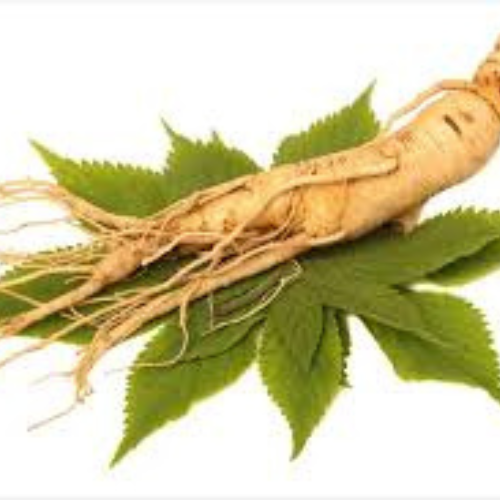Millions of children live with attention-deficit hyper-activity disorder, or ADHD, and 62% of them are currently receiving medication for their symptoms. With that being said, there are still many more children whose needs aren’t being met, due to lack of insurance or the cost of treatments.
What’s more, many parents don’t want to over-medicate their children, and look to alternative medicines. That can be a noble mindset, provided of course that the alternative remedies actually work.
In this piece I’ll look at what the science says about possible ADHD treatment with Ginseng, both American and Korean. I’ll then explore the possible implications for Adults living with ADHD.
Key Takeaways
✲ Studies have presented results that American Ginseng (Panax quinquefolius) can improve some attention measures, but not performance.
✲ Other studies have suggested that Korean Ginseng (Panax ginseng) can improve symptoms of ADHD in children.
✲ Some unrelated trials have shown other cognitive benefits of Korean ginseng.
✲ All studies demonstrated that Ginseng was well-tolerated, by adults and children, during the studies.
American Ginseng Studies
A group of researchers gathered middle-aged participants for a placebo-controlled study of attention and cognitive performance. None of the participants were identified as having ADHD. The main parameters of the study were to measure eye movement and performance of repetitive tasks.
The eye-movement measurements were taken based on a system called steady-state visually evoked potential, or (SSVEP). Using laser photography, scientists are able to measure dilations in the retina and subsequent changes in the brain–a useful tool in determining if someone is actually paying real-time attention.

This study of American Ginseng found significantly faster SSVEP results compared with placebo results. They did not, however, find any substantial difference in the actual performance scores of the individuals.
Researchers also mentioned another study, of younger adults, that found that American Ginseng can greatly improve what was called “working memory”. This study is important because it shows another dynamic of American Ginseng and its efficacy in another age demographic.
Korean Ginseng Studies
I researched dozens of articles and papers, and found two credible studies that included ADHD patients and Korean red ginseng. However, only one study was placebo controlled. I did not find any studies specifically stating that Korean Ginseng failed to produce any results, whatever.

Placebo Controlled Study
If you haven’t read my article on the importance of placebo-controlling in studies, check it out here. For the purposes of this article, it should be noted that only one study, published in The Journal of Child and Adolescent Psychopharmacology, enrolled a robust participant population sample (70 people), and randomized them into a treatment and a control group.
This study concluded that by all standard ADHD symptoms assessments, the children who took Korean Ginseng (1,000 mg, twice per day) had significantly better scores. They concluded their findings with the suggestion that it may provide an effective alternative to existing medications.
Three other important notes about this study. One, they found no change in hormone levels, a common claim among Ginseng enthusiasts (more on that below). Two, even at such a high dose, no children reported adverse effects of the ginseng. Three, the researchers did not recommend ginseng in addition to medication, but an alternative treatment.
Non-Placebo Study
The first of the studies was rigorous and soberly written, from a scientific angle. They had a small sample size (18 individuals), but all were diagnosed with ADHD, and all performed clinical testing after ginseng treatment. This group, like the study above, also had significant improvements in their ADHD scores.
In addition to not having placebo-control, these authors also hedged their results by stating that there was no evidence in their findings that the “general severity” of ADHD, behavior, or mood could be helped by ginseng. In short, they only claim to have seen better performance based on certain metrics.

Odds and Ends
There are a few red herrings in Ginseng and ADHD research. This becomes especially problematic when it comes to making medical decisions around children. Here are a few fallacies I noted in my research.
Circular and Misrepresented Data
It is important to check data and the results of actual trials, because unfortunately, not every author of a research paper reads the entirety of the articles they, themselves, are citing. Case in point: I found numerous articles that had no data of their own, claiming that ginseng (American and Korean) were good for attention–but these “studies” only linked to libraries of circular citations.

One article, cited by a number of other papers, had been referenced as a study showing the benefits of Korean Ginseng on ADHD adults. When I looked at the data from the study, however, it only used healthy, young adults, with no cognitive or psychological symptoms.
Another study, commonly touted as “evidence” of Ginseng helping with “attention disorders” only reviewed other studies. And those studies it reviewed only had marginal data of Ginseng improving attention.
Hormone Levels
Another red herring is an odd relationship based on unsubstantiated claims regarding hormone levels. This misinformation starts with: Dehydroepiandrosterone, or DHEA, has an impact on ADHD. Then: ginseng has an effect on DHEA.
The first problem is that many people claiming that DHEA and ginseng have a causal link are actually citing a letter to the editor of the Canadian Medical Association Journal, which letter itself cites three studies quite unrelated to DHEA and ginseng: one on infections, one on the elderly and falling, and a third study on climacteric disorders (hot flashes and poor circulation).
The second problem is that there is no definitive proof that DHEA has any causal relationship with ADHD. Which of course would make the relationship between DHEA and ginseng moot, in any case.
Final Thoughts
There is some preliminary evidence that both American and Korean Ginseng can help with some of the symptoms of ADHD. But only one study among the dozens went so far as to suggest that it may be used as an alternative medication. Another study went the other way, saying they had no confidence that ginseng could do anything but help with a limited scope of attention and memory indices.
None of this means that ginseng should not be pursued, with doctor involvement, especially if there are no contra-indications. These effects are not as well-studied in adults, and not all of the literature has its own data to support it.
Ginseng is well-tolerated, though, and so there appears to be limited risk in exploring it as an adjunct treatment options, under the advisement of a primary care physician.
